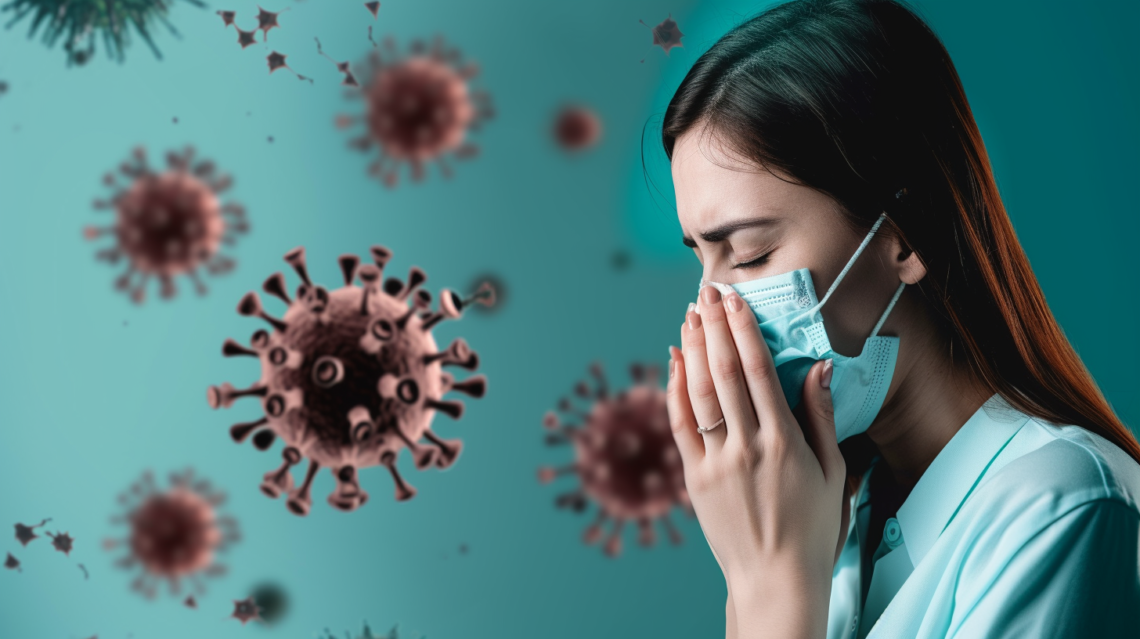
Chronic Cough After COVID-19
In light of the COVID-19 pandemic, an emerging and perplexing phenomenon that has caught the attention of the medical community worldwide is the persistence of symptoms long after the acute phase of the infection has subsided, a condition often referred to as “long-haul” COVID-19, post-acute sequelae of SARS-CoV-2 infection (PASC), or simply long COVID. Among the constellation of symptoms that have been observed in this condition, one that stands out both for its prevalence and its impact on the quality of life of those affected is a persistent cough, a symptom that, while seemingly mundane, can be a source of significant distress and can also serve as a window into the broader pathophysiological processes at play in long-haul COVID-19.
The phenomenon of a lingering cough in the wake of a COVID-19 infection is one that has been reported with increasing frequency, with patients describing a cough that persists for weeks or even months after the initial infection has cleared, a cough that can vary in its characteristics, being sometimes dry and hacking, at other times productive of mucus, and often accompanied by other respiratory symptoms such as shortness of breath or chest tightness; this symptom, while not unique to COVID-19, has emerged as a particularly notable aspect of the post-acute phase of the disease, leading to questions about its underlying causes and its significance in the broader context of long-haul COVID-19.
One theory that has gained traction among researchers is that this persistent cough may be the result of lingering inflammation in the respiratory tract, a hypothesis that finds support in the observation that COVID-19, particularly in its more severe forms, can cause substantial inflammatory damage to the lungs and airways, damage that may take an extended period to fully heal, during which time symptoms such as cough can persist; another line of thought suggests that the cough may be a manifestation of a broader dysregulation of the immune system triggered by the virus, a dysregulation that can manifest in a variety of ways, from persistent inflammation to autoimmune phenomena, and that can contribute to the diverse array of symptoms seen in long-haul COVID-19.
In addition to these physiological considerations, there is also the possibility that factors such as anxiety and stress, which are common in the aftermath of a serious illness like COVID-19, may play a role in the persistence of cough, with the psychological toll of the infection and its aftermath potentially exacerbating or even driving some of the symptoms experienced by patients; this intersection of physical and psychological factors is a reminder of the complex and multifaceted nature of long-haul COVID-19, a condition that defies simple explanations and requires a holistic approach to understanding and treatment.
The relationship of this persistent cough to other symptoms of long-haul COVID-19 is another area of interest, with many patients reporting a constellation of symptoms that can include, in addition to cough, fatigue, cognitive impairment (often referred to as “brain fog”), joint and muscle pain, and a range of other manifestations, a pattern that suggests a systemic impact of the virus that extends beyond the respiratory system; this constellation of symptoms, in its variability and persistence, poses a significant challenge to patients and clinicians alike, requiring a patient-centered approach to management that takes into account the unique constellation of symptoms experienced by each individual.
In terms of management strategies for persistent cough in the context of long-haul COVID-19, the approach is largely symptomatic, with treatments aimed at alleviating the cough itself, as well as addressing any underlying factors that may be contributing to its persistence; this can include the use of cough suppressants or expectorants, depending on the nature of the cough, as well as interventions aimed at reducing inflammation, managing anxiety and stress, and, in some cases, physical therapy or respiratory rehabilitation to aid in the recovery of lung function.
While the phenomenon of a persistent cough in the context of long-haul COVID-19 remains an area of active research and evolving understanding, what is clear is that it is a symptom that can have a significant impact on the lives of those affected, and one that requires a nuanced and comprehensive approach to management; as our understanding of long-haul COVID-19 continues to grow, it is hoped that more effective strategies for managing this and other symptoms of the condition will emerge, bringing relief to the many who continue to grapple with the long-term effects of this unprecedented global health crisis.

